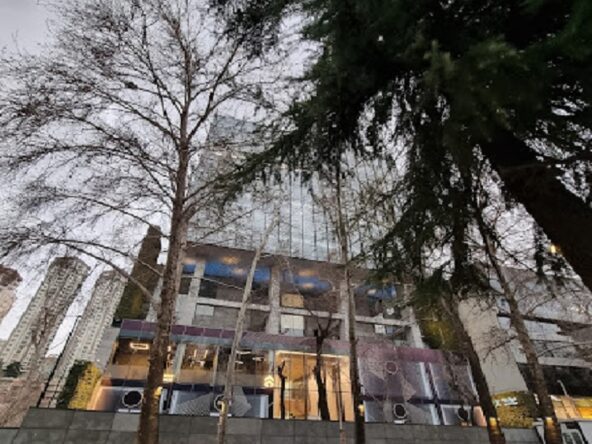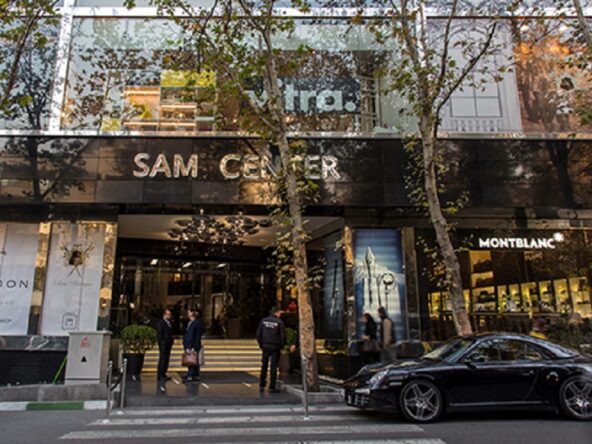Why Do So Many People Come to Tehran for Heart Surgery?
Open heart surgery is one of the cardiovascular treatments. During this procedure, the surgeon cuts the breastbone and opens the chest to access the heart. This surgery may include CABG (bypass surgery), heart transplant, and heart valve replacement. Today, many new heart procedures can be performed with only small incisions rather than wide openings. The production of medical equipment in Iran by capable specialists has made Iran the only leading country in the field of heart surgery equipment production among Middle Eastern countries. In this article, we are going to introduce heart surgery in Tehran.
What is Open Heart Surgery?
Open heart surgery treats heart problems including symptoms of heart failure, congenital heart defects, arrhythmia, aneurysm, and coronary artery disease. Open heart surgery is a type of heart surgery in which the chest is opened and surgery is performed on the muscles, valves, or veins of the heart. According to available statistics, one of the most common surgeries performed in adults is CABG.
Open heart surgery is one of the invasive surgeries, but at the same time, it is interesting to know that this surgery has a low mortality rate in the hospital. You probably get stressed and scared when you hear the name open heart surgery. However, it is better to know that the death rate in patients who perform open heart surgery is about 2.9%. There are two general methods of performing open heart surgery. Which include:
- On pump: After imaging the heart’s vessels, a heart-lung bypass machine is attached to the heart and temporarily takes over the heart and lungs. It circulates the blood in the body while removing the blood from the heart. Then the surgeon operates on a heart that does not beat and has no blood flow. After surgery, the surgeon disconnects the device and the heart starts working again
- Off-pump: In open-heart procedures, off-pump bypass surgery is performed on a heart that continues to beat on its own. This method only works for coronary artery bypass graft (CABG) surgery. Your surgeon may call this beating heart surgery

Types of Open Heart Surgery in Tehran
Burning heart vein with laser or ablation is one of the heart surgeries that is performed by open heart operation and is usually used when the patient’s heart veins suffer from fibrillation. This open heart surgery is more indicated when a person has performed other open heart surgeries. Especially for people who have had heart bypass surgery or valve placement. In the following, we will describe other types of heart surgery in Tehran.
Cardiac Angio
Cardiovascular surgery is performed for people whose heart vessels that supply blood to the heart cannot supply blood as before. They either got it or missed it. In these cases, the coronary arteries of the heart are opened with several meshes and metal tools to increase the blood supply to the heart.
Closed heart surgery
Closed heart surgery is a procedure in which the patient does not need to be on a heart-lung pump and the heart is not opened to perform it. This type of surgery has fewer risks and complications than open heart surgery, but it can only be used for some patients, and in some cases, a person must perform open heart surgery to recover.
Dilatation of the heart valve
In cases where the heart valves are dilated, they may not be able to function properly as before. Therefore, in these cases, it is possible to restore the function of the valve by performing a minimally invasive surgery, or by replacing the valve, the patient’s mind can be relieved.
Aortic and mitral valve replacement open heart surgery
Another heart surgery performed in Tehran is open heart surgery to replace the aortic and mitral valves. Sometimes it is possible that the aortic valve is damaged and does not function well. In such cases, the valve must be replaced, and this requires an operation to replace the aortic valve, which is also invasive.
Heart battery operation
When the patient’s heart does not work well and cannot beat regularly and at a regular rate, a heart battery that stimulates the heart to beat with proper regularity is placed in the heart and this is done by surgery. The life of those who have a heart battery is usually long. Most cardiac batteries last at least 5 to 7 years depending on usage. After this period, the battery or pulse generator must be replaced. The cost of the heart battery will be much lower with additional insurance.
Who is Open Heart Surgery Suitable for?
As mentioned, open heart surgery is usually performed when a person needs coronary artery bypass grafting (CABG). People who have the following conditions can perform open heart surgery before the best doctor in Tehran:
- Arrhythmia, arterial fibrillation
- Congenital problems and defects such as wall defects, incomplete and unformed walls between the heart chambers
- Coronary heart disease
- Heart failure

When Is Open Heart Surgery Necessary?
Coronary artery bypass grafting may be necessary for people with coronary artery disease. Coronary artery disease or coronary heart disease occurs when the blood vessels that supply blood and oxygen to the heart muscle become narrow and stiff. This is often called “hardening of the arteries.”
Hardening of the arteries occurs when fatty substances form plaques on the walls of the coronary arteries. This plaque narrows the arteries and makes it difficult for blood to flow. A heart attack can occur when blood cannot flow properly to the heart.
Doctors use open heart surgery to treat all types of heart disease. The reason for open heart surgery can be different. You may need open heart surgery for the following reasons:
- Repair or replacement of heart valves with artificial heart valves (heart valve disease)
- Repairing damaged or abnormal areas of the heart
- Implantation of medical devices that help the heart beat correctly
- Replacing the damaged heart with a donor heart (heart transplant)
- Cardiac arrhythmias, including atrial fibrillation
- Treatment of congenital heart defects, such as atrial septal defect (hole in the heart) or hypoplastic left heart syndrome (underdeveloped heart structures)
- Coronary Artery Disease
- Treatment of heart failure
- Thoracic aortic aneurysm
What Is the Procedure of Heart Surgery in Tehran?
CABG takes from 3 to 6 hours. First, the patient is given general anesthesia (open heart surgery may also be performed in children and infants). Anesthesia ensures that the patient will be asleep and pain-free during the entire surgery. Other stages of heart surgery in Tehran include:
- The surgeon makes an 8- to 10-inch incision in the chest
- The surgeon cuts all or part of the patient’s breastbone to expose the heart
- Once the heart is visible, the patient may be connected to a cardiopulmonary bypass machine. This device diverts blood away from the heart so that the surgeon can operate. Some newer methods do not use this device
- The surgeon uses a healthy vein or artery to create a new path around the blocked artery
- The surgeon closes the breast bone with a wire and puts the wire inside the body. Then the main cut is sewn
A sternum is sometimes performed on people who are at risk, such as those who have had multiple surgeries or the elderly. Sternum plating is when the breastbone is reattached after surgery with small titanium plates.

How to Prepare for Open Heart Surgery in Tehran?
Before performing the heart surgery in Tehran, tell your doctor about any medications you take, including over-the-counter medications, vitamins, and herbs. Notify them of any illness, including outbreaks of cold sores, colds, flu, or fever. In the 2 weeks before surgery, your doctor may ask you to stop smoking and stop taking blood-thinning medications such as aspirin, ibuprofen, or naproxen.
Before you prepare for surgery, it is important to discuss your alcohol consumption with your doctor. If you usually drink more than 3 alcoholic drinks during the day and stop right before surgery, you may experience alcohol withdrawal. This may cause life-threatening complications after open-heart surgery, including seizures or tremors. Your doctor can help you stop drinking alcohol to reduce the likelihood of these side effects.
The day before surgery, you may be asked to wash yourself with a special soap. This soap is used to kill bacteria on your skin and reduce the chance of infection after surgery. You may also be asked not to eat or drink anything after midnight. When you arrive at the hospital for surgery, your healthcare provider will give you more detailed instructions.
What Happens After Open Heart Surgery in Tehran?
When you wake up after surgery, you will have 2 or 3 tubes in your chest. These are to help drain fluid from the area around your heart. You may have intravenous (IV) lines in your arm to provide fluids, as well as a catheter (thin tube) in your bladder to drain urine.
Even if you are diagnosed with the most dangerous heart disease, you will be connected to machines that monitor your heart. In case of problems, nurses will be near you to help you. After surgery, you may experience the following:
- Constipation (a common side effect of strong pain relievers)
- Depression or mood swings
- Insomnia or difficulty sleeping
- loss of appetite
- Memory problems
- Muscular pain in the chest area and during open heart surgery from the side
- Pain, bruising, and slight swelling at the incision site
You will usually spend your first night in the intensive care unit (ICU). You will then be moved to a regular care room for the next 3 to 7 days. After heart surgery, you will be hospitalized depending on your recovery. But usually, you will be hospitalized for 3 to 7 days after surgery. This is provided that your stay in intensive care does not continue and there is no problem in the recovery process after open heart surgery.
Tehran Is the Center of Excellence for Cardiovascular Diseases
Iran’s achievements in treating cardiovascular diseases are very impressive. Iran is among the few countries where heart transplants are performed. So far, about 140 heart transplants have been performed in Iran. Treatment of heart diseases has made medical tourism flourish in Tehran.
The number of cardiovascular diseases in Iran and the world is constantly increasing; According to published statistics, one out of every two Iranians who die is due to heart disease. In most countries of the world, cardiovascular diseases are known as the most important cause of death.
According to the statistics of the World Heart Association, stroke and heart disease cause the death of 17 million people in the world every year. They predict that by 2030, the number of deaths due to heart disease in the world will reach 23 million people annually.

Iran has two strengths in treating cardiovascular diseases. First, during the last few decades, the knowledge of treating cardiovascular diseases in Iran has reached the world standard level. In terms of human resources, our country has elite and experienced therapists in this field, and some of these doctors are even world-renowned.
The second strength of Iran in the field of treating cardiovascular diseases is the low cost of treating these diseases in Iran compared to other developed countries.
For example, open heart surgery the “bypass” type of surgery in the United States costs about 75 thousand dollars for the patient. The same surgery will cost the patient about 15,000 dollars in the Netherlands and about 16,000 dollars in Argentina, but the cost of the same surgery in Iran is only about 5,000 dollars for the health tourist.
Tehran Offers Accommodates You for your Heart Surgery in Tehran
Heart surgery is a minimally invasive surgery that is used in the treatment of some heart defects in Tehran. Of course, this surgery is sometimes used to relieve symptoms or combined with other methods. On the other hand, in closed heart surgery, instead of cutting the chest bone, the surgeon makes a small incision next to the chest and between the ribs on the side. In this way, the doctor has access to the heart. In this method, the heartbeat does not stop and there is no need to use a cardiopulmonary bypass device. If you are a candidate for heart surgery, you can get treatment from experienced doctors in Tehran.
Tehran Offers is the leading real estate agency for housing foreigners. Knowing the importance of medical tourism in Tehran, here at Tehran Offers, we provide accommodation services for patients and their companions from all over the world during their treatment period.







